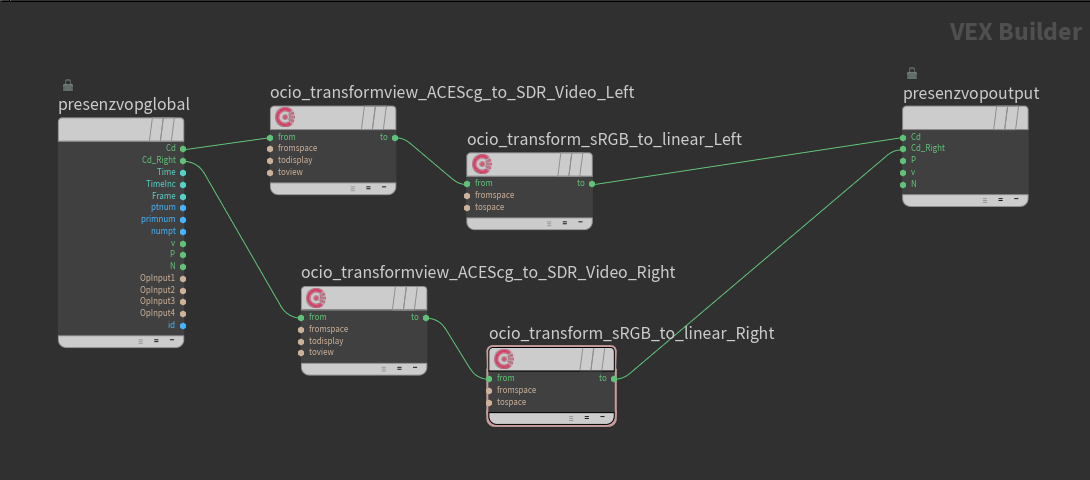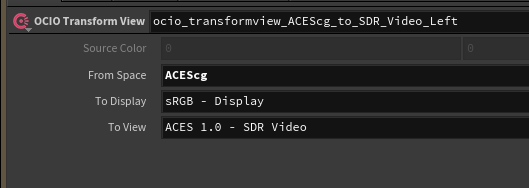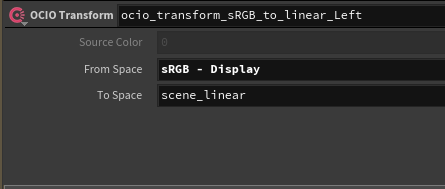OCIO Color Transform Network in Houdini
This document outlines the process of applying OCIO color transforms within a Houdini network to convert images from ACEScg color space to SDR video space, and then back to linear color space.
Network Diagram

The OCIO Color Transform Network setup in Houdini for view transform to SDR video and back to linear space.
OCIO Transform Nodes
The network consists of a sequence of OCIO transform nodes that perform color space conversions on the left and right components of a stereo image.
ocio_transformview_ACEScg_to_SDR_Video_Left
This node takes the left eye image in ACEScg color space and applies a view transform to SDR video space.
Configuration parameters for the node are as follows:

From Space: ACEScg To Display: sRGB - Display To View: ACES 1.0 - SDR Video
ocio_transform_sRGB_to_linear_Left
After the view transform, this node converts the image from the sRGB display-referred space back to scene-linear space.
Node parameters are set to:

From Space: sRGB - Display To Space: scene_linear
The same set of nodes and transformations are applied to the right eye image with nodes named:
ocio_transformview_ACEScg_to_SDR_Video_Right
ocio_transform_sRGB_to_linear_Right
Purpose of Transformations
The OCIO color transforms in this network serve two primary purposes:
View Transform: To accurately emulate the display characteristics of SDR video on a device calibrated for sRGB, providing a realistic representation of how the image will look in a non-HDR context.
Linear Transform: To revert the color space back to linear, preserving the high dynamic range and color fidelity of the original image for further processing or compositing.
Note
When implementing this network, ensure that your OCIO configuration is correctly set up in Houdini to reflect the color spaces and transforms used in your project.